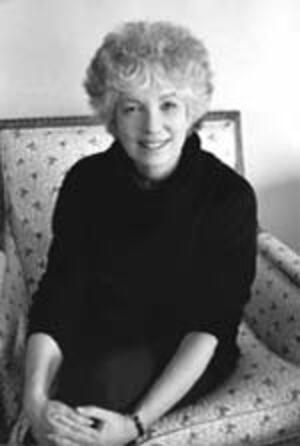Birth of Anne Roiphe, feminist author of "Up the Sandbox!"
Over 40-plus years, Anne Roiphe’s work has been so extensive that Salon’s critic Sally Eckhoff wrote that tracing her career “often feels like following somebody through a revolving door: the requirements of keeping the pace can be trying.”
Roiphe has published nine novels, four memoirs, and five nonfiction books, the most famous of which, Up the Sandbox!, was a bestseller in 1970 and a hit film starring Barbra Streisand two years later.
Roiphe has never shied away from controversy. An article in the New York Times entitled “Christmas Comes To a Jewish Home” caused a ruckus in 1978. In it, the Jewish woman born on December 25 wrote of celebrating Christmas as an aspect of assimilation and her growing humanism. Explaining her appreciation of Christian art, lighted trees, and Dickens’ A Christmas Carol, she wrote, “I can see humanity where my grandfather saw only the march of Cossacks.”
In response to the controversy the article generated, in 1981 Roiphe wrote her first nonfiction book, Generation Without Memory, in which she revealed her intention to make a meaningful Jewish life for herself. She has since devoted most of her work to exploring Jewish themes, in novels, magazine articles, and columns for the New York Observer.
Her daughter, Katie Roiphe, caused a national stir in 1993 with her book, The Morning After: Sex, Fear, and Feminism on Campus, which the Times said challenged “the orthodoxy that there is a pandemic of rape on campuses and wondering if it [was] wise to teach young women to view men as a lurking threat.” A New York Times interview with mother and daughter featured lively give-and-take between the two:
A vital political movement should be able to sustain critiques," [Katie] Roiphe said. "You should be able to say: ‘I am a feminist. I do think that we need to modify the way we're talking about rape, the images we're projecting.' Feminism should be large enough to encompass the kind of maverick positions.
A maverick position, not a rebellion, her mother [Anne] emphasized. "May I say, I am a mother trying very hard to catch up with my daughter. She is not in rebellion against me. I am extremely proud of her independence of thought. I wish such a rebellion on all mothers everywhere."
In an interview with David Gergen on the PBS Newshour in 1997 Roiphe reflected on her exploration of feminism in her book Fruitful: A Real Mother in the Modern World:
The tensions are the same that everybody of my generation and the generations that have followed feel, which is how do you balance your desire for your career and your work life with your home life and the needs of children, and we are balancing, we are fighting with men, we are trying to work it out family by family, and what I finally realized was that the feminist revolution was not complete. We needed to bring men into the home in order to fully make ourselves feminist families, not just feminist people.
Sources: “At Lunch With: Katie and Anne Roiphe: One Daughter’s Rebellion R Her Mother’s Imprint?” and “Christmas Comes To a Jewish Home,” New York Times; “Fruitful,” Salon. Salon.



